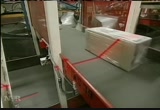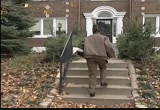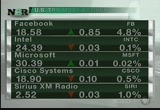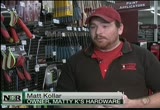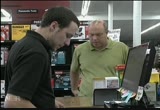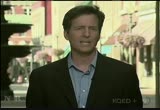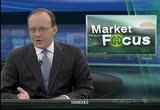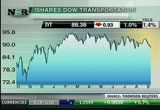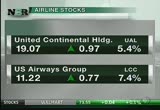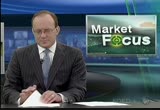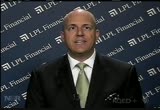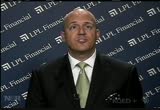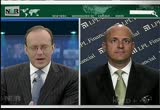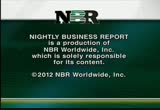tv Nightly Business Report PBS September 5, 2012 6:30pm-7:00pm PDT
6:30 pm
>> this is n.b.r. >> tom: good evening. i'm tom hudson. a warning from fedex raises new questions about the health of the global economy, as shipping slows around the globe. >> susie: i'm susie gharib. so, how's your economy? our coverage of election 2012 continues, we ask small business owners if they're feeling better now than they did four years ago. >> tom: and nokia and motorola look to up the ante against the iphone, as the companies unveil new models in the smart phone wars. >> susie: that and more tonight on "n.b.r."! >> susie: more worries about the global economy. the trigger this time came from fedex.
6:31 pm
the giant shipper issued a profit warning for the current quarter overnight, saying weakness in the global economy is reducing international shipments. the gloomy fedex forecast weighed on investors who are already stressed out about the sluggish world economy, and on edge about what european policymakers will decide about the euro-zone's financial problems at a key meeting tomorrow. on wall street, the dow rose three points, but the nasdaq lost five, and the s&p slipped almost two points. >> reporter: fedex is called a "bellweather," that's because you can tell how the economy is doing based on how many packages it ships around the world. the more it moves, the better things are, the less it ships, well, that's not so good. and fedex says its not shipping as much these days. with europe in recession, and china slowing down, it's no wonder fedex cut its profit forecast for its fiscal first quarter that ended august 31.
6:32 pm
fedex will still make money, but not as much. it now expects per share earnings of $1.43 at best, much lower than its previous forecast of $1.60. the new outlook puts fedex on track for its first yearly earnings decline since 2009. final results come out on september 18. investors sold the stock, with shares tumbling 3% at the opening bell; they recovered a bit by the close. arch-rival u.p.s. also struggling. the company lowered its 2012 earnings forecast in july, blaming it on global economic uncertainty. >> reporter: i'm diane eastabrook still ahead small businesses tell us if they're better off today than they were four years ago. >> tom: two smartphone makers looked to dial up the competition against apple's iphone today. nokia unveiled its fourth lumia phone, which runs microsoft's windows operating system. meanwhile, motorola showed off its latest smartphones using google's android software.
6:33 pm
suzanne pratt has more from new york. >> reporter: meet nokia's and microsoft's new smartphone, the lumia 920. >> he're we go. >> reporter: the finnish phone maker and the world's largest software maker unveiled it today in new york. >> we started with the ambition that nokia could build something beautifully different. this is lumia, the world's most innovative smartphone. this is a very important milestone. in a sense it is unbelievable how far we've come in just 18 months. >> reporter: the question now, is how far can they go in reclaiming market share lost to apple, samsung and google. >> i think the new nokia looks great, but that's not good enough because the iphone 5 is going to look awesome and so do the phones that just came out from motorola and google today. >> reporter: here's a peak at
6:34 pm
those new motorola smartphones. it's a line of android devices under the razr brand name. and the first major launch since the company was acquired by google a year ago. >> there's something about the android eco system and the android approach that's produced a platform cover with cutaways so much greater than i expected. to me that's why google needed motorola mobility to be part of it. >> reporter: the razr m model has a 4.3 inch touchscreen and goes on sale at verizon next week for the appealing price of $99. the parade of tech announcements continues tomorrow, when amazon is slated to unveil it's latest kindle fire tablet. and, next wednesday apple is widely expected to release its big kahuna, also known as iphone 5. can it possibly live up to the hype? >> i do think investors and shoppers probably are going to be a little bit disappointed. it will be sleeker, faster, but
6:35 pm
only incrementally so. it's not going to be a huge game changer. >> reporter: that may be, but, undoubtedly, plenty of iphone 5s will still get sold in the coming months. suzanne pratt, "n.b.r.," new york. >> susie: the big question this election year: "are you better off today than you were four years ago?" answering that question has become a rally cry at this week's democratic national convention. and president obama is hoping a lot of voters say "yes". for small businesses the answer is both "yes" and "no".
6:36 pm
job cuts led some entrepreneurs to open their own businesses. but, some firms say the last four years have been harder for them. diane eastabrook has more. >> reporter: matt kollar spends much of his days stocking shelves at his hardware store in chicago's lincoln square neighborhood. kollar got the idea to open the store four years ago. and even though he had a solid business record as a theater set builder, it took kollar two years to get a loan. >> i went to 12 different banks. i went to all the local banks. i had three banks fail on me after approving the loan. >> reporter: across the u.s. many small businesses say the past few years have been among their toughest. >> we've done well, but our profits have shrunk and gotten eaten up by a lot of other things: insurance, taxes, and other things, rent, etc. >> reporter: the national federation of independent business says in 2009 its small business optimism index declined to its lowest level in 30 years.
6:37 pm
while the index has risen slightly since then it's still below 100 which is considered negative. small businesses say they face a myriad of challenges they didn't face just a few years ago including tighter lending rules, tougher accounting standards, and declining real estate values. depaul university management professor harold welsch says the sour real estate market is especially troubling for smaller firms. >> many entrepreneurs rely on second mortgages and equity loans in order to finance their business and inventory. >> reporter: still, many small businesses are thriving. rashun judge says in 2008 he was on the verge of closing lucky's famous burgers in new york-- just two years after opening it. but today judge has gone from one restaurant to four and from ten employees to 100. >> the other stores are bigger than this one, so it takes more staff so that's a good thing-- more personnel to hire, to employ.
6:38 pm
>> reporter: four months ago kahve coffee lounge opened in a neighborhood surrounded by competing national coffee chains. owner erol zeren thinks the new business is making his life and the neighborhood better. >> the fact that an independent coffee shop opened in this community is making people really happy. i would say business is not bad. i pay the rent. >> reporter: still many small businesses think tax reform and addressing the federal deficit could provide more certainty about where the u.s. economy and their businesses are heading. diane eastabrook, "n.b.r.," chicago. >> tom: in the weeks before the democratic national convention, the president was test driving his economic message around the country, one of the places he took it too, the swing state of virginia. darren gersh spoke today with business owners in roanoke, for an update on how the president's message is playing. >> reporter: the president chose roanoke va, a key city in a key swing state to lay out his
6:39 pm
vision of government and business cooperating to boost economic growth. >> the point is, is that, when we succeed, we succeed because of our individual initiative, but also because we do things together. roanoke was also where the president awkwardly stressed the importance of government-funded infrastructure to business. >> somebody invested in roads and bridges. if you've got a business, that- you didn't build that. >> for many businesses here, that comment showed the president is an economic problem, not the solution. >> that brief portion and it may have been taken out of context reinforced that perception. >> reporter: columnist dan casey responded to the uproar by writing about the many examples of government support for local roanoke businesses and the revival of the downtown area but the response to his defense of what the president meant to say was mixed. >> half the respondents were outraged.
6:40 pm
and half of them were like hooray. did it change many minds about >> reporter: shop owner stephanie sowder thinks the president is right and areas like southwest virginia would struggle without government help. >> i think he has a great attitude towards business owners like myself. i think he wants to see local american business owners succeed. i think he wants to see people making things in our country. >> reporter: choclatier matt burkett voted for obama, but now he's undecided. >> is it something that is possible to change in four years when you're given what he was given to start office with and that to me that's the thing has he had enough time yet.
6:41 pm
>> the president will have another chance to lay out his vision for how business and government can work together. suzie? >> susie: so how hard a sell is that going to be? >> paced on what i'm hearing i think it's going to be a pretty tough sell. the president does have a record and a lot of people are skeptical that stimulus did a lot to boost business. also there's the issue that in the state and local level people can see how business government cooperation works really well. on the federal level it gets more tenuous. so a tough sell. >> susie: and as you know, the central question of this election is about the economy, and the question is are you better off today than you were four years ago. you heard diane's report talking to small businesses, and i know you've been talking to a lot of people in virginia. what are voters saying? >> well, virginia is an interesting case, because it is a swing state. but also it gets it a lot of government money for defense, for other things. i think it's the number one recipient of federal dollars.
6:42 pm
and virginia the real estate market has actually recovered so, virginia relative to the rest of the country is doing pretty well. they might have a fairly positive answer in many parts of the state to that question. whether it's going to be the same in the rest of the country is another story. >> susie: so tonight the big headliner in charlotte at the democratic convention would be president clinton, there's a lot of debate here on whether what he says will help or hurt president obama. what are you hearing? >> i think it has to help, bill clinton has a great record, he's going to point on on saying that he balanced the budget. middle class incomes went up and his policies are not that much different than what president obama will continue. so that will probably help at the margin, help in the south. but it's going to be president obama's work to bring that message to the rest of the country and convince them. >> susie: all right, there's going to be a lot of opinions about this tomorrow. thanks, darren gersh, on the road in roanoke, virginia.
6:43 pm
>> tom: >> tom: we asked out facebook friends, if they're better off now than four years ago? deloris k. says "no way, my family and i have been struggling to make ends meet. how am i better?" but tamee g. disagrees, saying "i am better off because the pell grant funded my nursing education after i was laid off my admin job in 2009." remember, you can visit us anytime online, we're @bizrpt on facebook and twitter. >> susie: investors finally
6:44 pm
liking facebook! shares of the social network jumped almost 5% today to close at $18.58. that reaction came as facebook used a regulatory filing to announce what amounted to a repurchase of several million shares, and to tell investors that its largest shareholder ceo mark zuckerberg has no plans to sell his shares or options for at least another year. facebook stock has lost over half of its value since going public at $38 a share in may. >> tom: let's get going with tonight's "market focus." the major indices meandered around in narrow trading ranges, ahead of tomorrow's meeting of the european central bank. the e.c.b. could signal new strategies to help with the debt crisis there. the s&p 500 had no firm direction, as the markets balanced the fedex warning we mentioned earlier in the program, and stronger productivity. worker productivity in the second quarter was revised higher to 2.2%, up from the initial reading of 1.6%. this waslightly better than expected.
6:45 pm
trading volume slowed a bit from yesterday's pace. 672 million shares on the big board. just under 1.5 billion on the nasdaq. modest moves for the stock sectors. the materials gain of 0.4% was the best. the least for the 0.4% decline in the utility sector. transportation stocks were in focus thanks to the earnings warning from fedex. the sector can be a barometer of the global economy. this exchange traded fund following the dow jones transportation index fell 1%, finishing at its lowest price since late june. it was trucking and ship companies driving the fund lower. con-way down 3.9%. overseas shipholding dropped 2.6%. volume was lighter than usual with those two. but it was almost double the average in j.b. hunt stock, with shares down 2.5% to a six month low. despite fedex's warning it would keep planes on the ground and delay new deals, airplane maker boeing wasn't hurt today. boeing shares rose 1.5%.
6:46 pm
a boeing executive told reuters passenger air carriers continue replacing their planes. meantime, united continental cut its outlook for capacity for the rest of the year, blaming a slow economy. shares responded by rallying 5.4%. but u.s. airways expects fourth quarter demand to pick up, especially after the election as businesses get some clarity on the fiscal cliff issues. shares gained 7.4%. disney stock was a stand-out as shares continue a climbing, hitting new highs today. the stock finished higher by 2.3%, closing over $50 per share. the stock is up 35% this year, making it the second best performer year to date among dow industrial stocks. bank of america is the best. grocery chain safeway has seen its profit margins pinched by
6:47 pm
high gasoline prices and higher food costs. today, it said it plans to spin off a portion of its gift-cards business called black-hawk network. it provides gift cards for other stores like j.c. penney. safeway shares have been trending lower since april. today they gained 4.3% to their highest price since july. the spin-off could happen in the first half of next year. three of the five most actively traded e.t.f.'s were down. the russell 2000 fund gained a fraction. the financial sector fund was unchanged. and that's tonight's "market focus."
6:48 pm
>> tom: still a week before voters cast their ballots for president. tonight's street critique guest has investors and traders already voting with their money. jeff kleintop is with us, from lpl financial. so here we go, several weeks to go. which direction do you think the investment market is leaning? >> you know, the markets based on our wall street election poll appear to be pricing in a status quo outcome for the election, based on our wall street election poll that looks at a number of industries favored by democrats and those favored by republicans. the democrats have been leading lately and these are infrastructure related industries, things like construction materials, construction equipment, home building, for example. on the republican side energy focused industries, the big banks of course in there as well. we've seen leadership by the democrats lately, very important as we get close to the all important decisions around the fiscal cliff early next year. >> tom: let's take a look at two examples that you have, one you've dubbed the democratic leaning sector, that is the home billers you
6:49 pm
mentioned, itv, they've had a nice steady climb over the past steady months. what makes this a democratic play? >> this has been a winner, certainly we all know the back drop of the improving housing market, improving prices in all regions, better financing ability and shrinking inventories, but the key is in general we've seen more support for housing out of democrats than we have out of republicans. it makes more of, leans more in that direction when you look at how it's favored. and certainly that's been true in the past, likely to be true in 2013 as well. so this one likely to continue to perform well under democratic leadership. >> tom: one of those g.o.p. leaning sectors you've identified, no surprise, is related to energy. but it's not the asset itself, as opposed to those companies servicing and providing the equipment to get it out of the ground and use it. this is the oil and gas equipment services exchange traded fund, xes.
6:50 pm
this one hasn't looked so well. but could this one be buffeted instead by the global economic outlook? >> certainly. the global economic outlook and the demand for energy is a big part of the picture here. but exclusive of that and just looking at its relative performance here, we don't want to have something that's too reflective of just the price of energy, really looking at the prospects for incentives for energy investment, and that's what these services companies tend to benefit from. >> tom: finally, these are short-term ideas. long-term still gets down to corporate performance and the economy, doesn't it? >> nothing come mayors to earnings over the long run, that's the life blood of stock market performance. but in the short term over the next eight weeks or so, politics are going to have their say. >> tom: what about disclosures, do you have any positions, jeff? >> i do not have any positions and we don't hold any position, but we do recommend these to advisors. >> tom: recommended to the advisors that jeff now belongs
6:51 pm
with alpl financial. >> susie: a successful 2013. his alfred edmond jr., senior vice president and editor at large at black enterprise. >> the labor day holiday has passed and football season begins today. go giants. with and with the r.n.c. convention in the books and the d.n.c. convention in full swing, we're on the home stretch to the presidential election. it's time to do a serious assessment of our game plans as we prepare for the final quarter of the new year. that means asking-- and answering with brutal honesty-- several questions: is my business delivering a profit? and am i personally realizing a real return on my investment of time, money and effort for myself, as well as for my employers, clients, staff, spouse, children and other important relationships? what do the numbers say? where and how am i making or losing money, and why?
6:52 pm
as individuals, you need to do your net worth statement and check your progress against your personal financial goals. am i happy and fulfilled? do i still have passion for my business, profession and job? am pursuing my life with a sense of purpose? if not, do i have the courage to change, and to accept the risk that comes with that choice? and what about the risks of not changing? the person who will ultimately determine your business success in 2013 and beyond is neither president barack obama or gop nominee mitt romney-- it's you. whether you've had a championship year in 2012 or you've barely survived and just want to finish strong for a fresh start in 2013, it's up to you to make the plans and set the goals necessary to ultimately achieve success. i'm alfred edmond jr. >> tom: homeowners and businesses in louisiana and mississippi are beginning the financial clean-up after hurricane isaac. thousands have filed insurance claims for losses expected to
6:53 pm
total around $1 billion when the final tally is in. the storm was the first real test for a half billion dollar tax-payer owned real estate investment in miami, marlins park. the baseball stadium opened this year, competing against florida's hurricane season and its threat of expensive damages. >> reporter: in a stadium filled with eye-candy, the fish tanks behind home plate, a moveable wall of windows behind center field, and even a bobble-head museum, the most striking feature of marlins park is its retractable roof. it's also its most expensive, and riskiest asset when a serious tropical storm blows in. >> the roof itself was close to $100 million. so the last thing we'd want to do is damage the roof where it would prevent us from playing games. >> reporter: and that would mean a loss of spending by fans in and around the park. this being south florida, living with hurricanes is a fact of life, and so is finding ways to protect property against wind and water damage so common with storms. for the marlins, that means not
6:54 pm
closing the roof all the way when bad weather comes. our wind tunnel studies revealed that we had to open the roof whenever there was a hurricane, a potential hurricane, tropical storm, for us to secure the roof because of the uplift, the best position was to have some gaps in the three panels. so the wind and the water could actually enter the building and lose some of its strength. >> reporter: that's exactly what they did when tropical storm isaac came through town last week. what looks like steam coming off the roof, that's the wind and rain pouring in. this is the control room at marlins stadium of its biggest risk, the retractable roof. in all this is a $515 million facility. but the playing field is only four feet above the water table. that means it also has to deal with a significant risk of flood waters. felipe bastista is an engineer with commercial insurance firm f.m. global. >> businesses don't have to be victims to natural disasters.
6:55 pm
that the majority of all losses are preventable, not inevitable. and there's certain steps that can be taken to mitigate or prevent a loss, such as a cost effective solution of installing flood gates in this case. >> tom: come over here and we can look at really wants at risk here at marlins stadium if the water comes up and you can see right here, here we are in center field for the stadium if the flood waters come in. >> tom: the ball-park's focus on floodwaters serves as a reminder floods are the most common natural disaster. its flood damage that may prove to be most costly from isaac in louisiana and mississippi. that's nightly business report for wednesday, september 5. good night susie and everyone. >> susie: goodnight tom, thanks for watching everyone. we'll see you online at: www.nbr.com and back here tomorrow night.
6:56 pm
315 Views
Uploaded by TV Archive on

 Live Music Archive
Live Music Archive Librivox Free Audio
Librivox Free Audio Metropolitan Museum
Metropolitan Museum Cleveland Museum of Art
Cleveland Museum of Art Internet Arcade
Internet Arcade Console Living Room
Console Living Room Books to Borrow
Books to Borrow Open Library
Open Library TV News
TV News Understanding 9/11
Understanding 9/11
